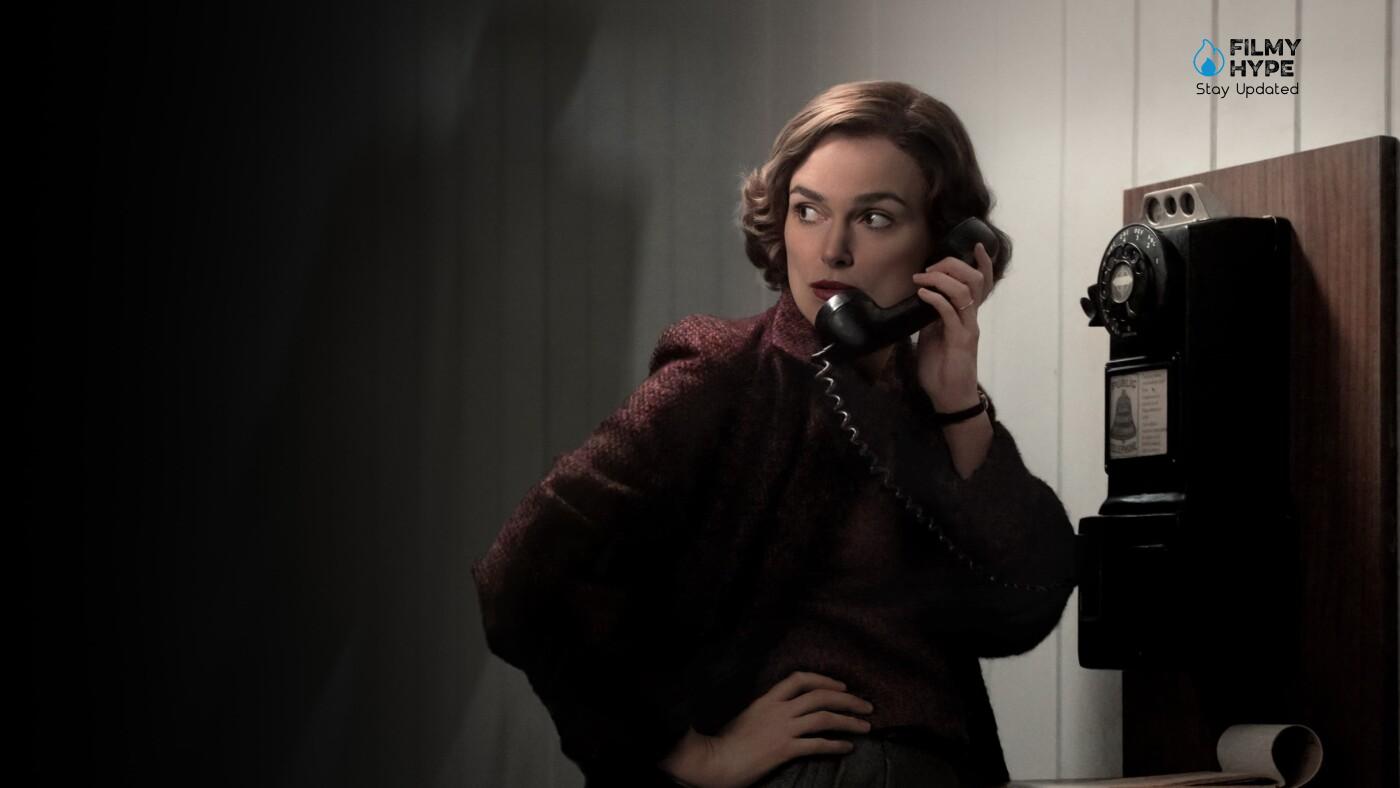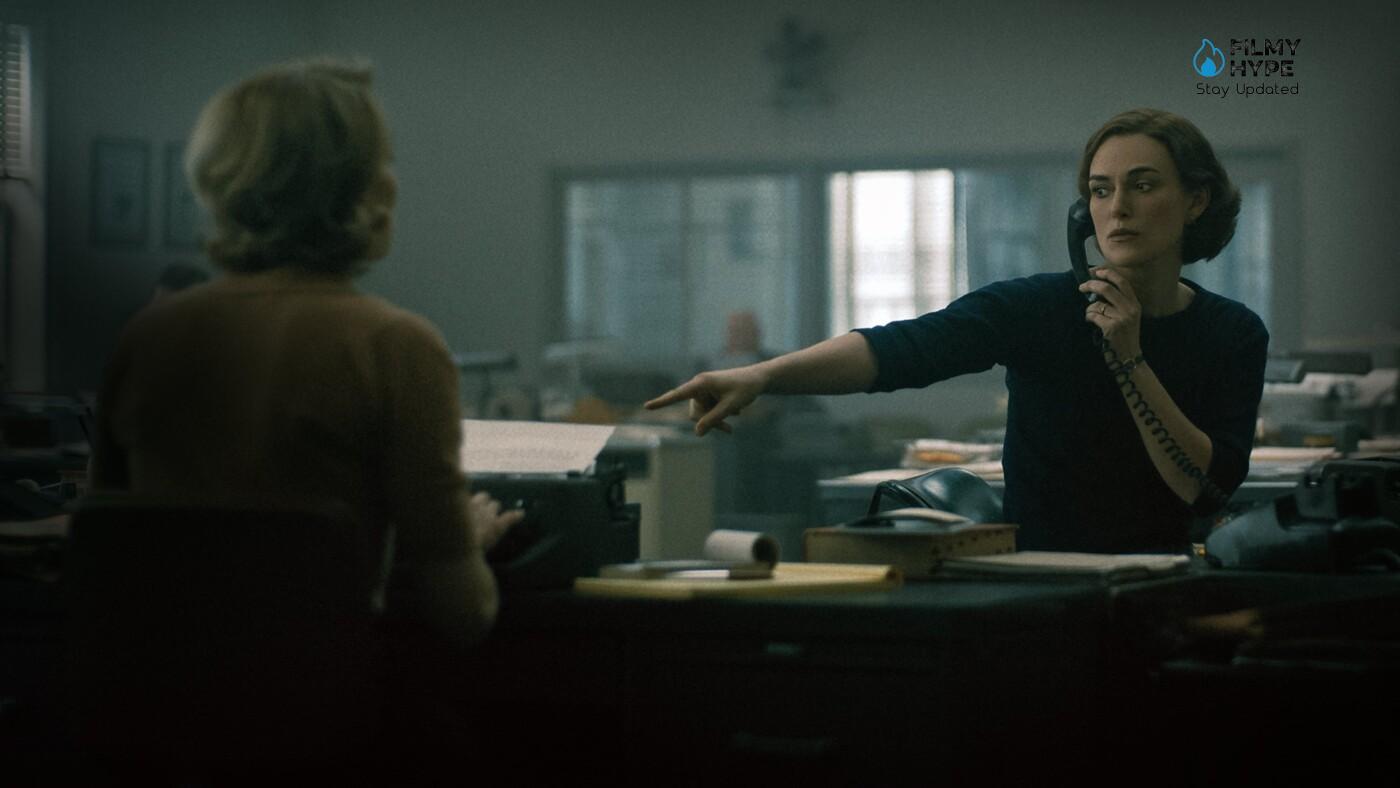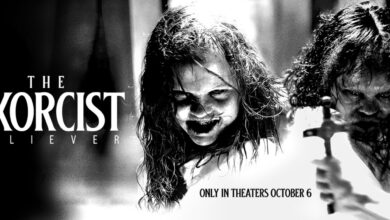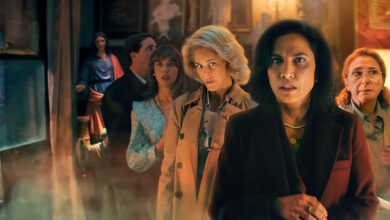Boston Strangler Review: A Thriller Between Media and Investigation
Cast: Keira Knightley, Carrie Coon, Alessandro Nivola, Chris Cooper, David Dastmalchian, Morgan Spector
Director: Matt Ruskin
Streaming Platform: Hulu and Disney+
Filmyhype.com Ratings: 3.5/5 (three and a half stars)
Boston Strangler the true-crime thriller inspired by what is considered the first serial killer in history is coming to Hulu and Disney+ in other countries starting March 17. In Boston Strangler, director and screenwriter Matt Ruskin (Courage to fight) traces the origins of some of the most heinous crimes in history, committed between 1962 and 1964 in Boston and whose victims were innocent women between the ages of 18 and 85 years old. Leading the search for the killer is Keira Knightley, along with Carrie Coon (Fargo, The Gilded Age ), who in the film respectively play Loretta McLaughlin and Jean Cole, two journalists of the Record American who first took an interest in finding the culprit, going against their newspaper and team in a predominantly male environment and later also against the police, in those years still unprepared to handle such a large-scale case.

As we will see in this review of Boston Strangler, available on Hulu and Disney Plus, the film directed by Matt Ruskin does just that: to tell the America of the sixties through a case that shocked it to the core, namely that of Boston Strangler. In particular, the narration tries to highlight the female condition of the time, elevating to absolute protagonists two journalists who played a fundamental role in the dissemination of the story to the general public (but, as we see in the film, also in investigations). The characters of Keira Knightley and Carrie Coon symbolize generations of women who would like to start following their dreams from a professional point of view but who are still chained to the family prison, which allows them to fulfill themselves within the limits of their duties of housekeeping and child and husband care.
Boston Strangler Review: The Story Plot
In fact, at the center of the story are two real-life journalists: Loretta McLaughlin and Jean Cole. At the time, the two were reporters for Boston’s Record – American, among the very few women to deal with crime and judicial news, investigations, and “men’s” articles. All with many difficulties, being also a wife and mother of a family, often judged negatively for the commitment and time spent on work. Playing them are actresses Keira Knightley and Carrie Coon. The former is the absolute protagonist of the film, therefore narrated from a female point of view. Loretta is the only one who understands that there is a single hand behind the recent murders in Boston. It will be her articles, written with the collaboration of the veteran Jean, to put the police on the right track, but also to unleash panic in the city. In the film, Albert DeSalvo only appears in the advanced stages of the film, as happened in the first title dedicated to the story, filmed in 1968.
The focus is on the women of the city: the two protagonists but also the victims, whose fear is told, distrust, but also the difficulty of living in a male-dominated world that exposes them to continuous dangers of various kinds. The film opens with the discovery of the body of a woman, killed and strangled in her bed. Going back in time a few months we are in Boston, where the young reporter Loretta McLaughlin (Keira Knightley) works for a local newspaper but is tired of writing articles of exclusively “female” interest (product reviews and advice for home management). Her ambitions concern crime news, an interest that leads her to follow everything that is published on murder cases that take place in the city. Given this very particular “hobby”, she is the first to notice the connection between the deaths of some elderly women, strangled in their homes: could the person responsible for the bloody murders be the same? Loretta discovers the crime scenes are linked by a disturbing detail:
Given the precision of the work done on the case in his spare time, the director of the newspaper decides to give Loretta a chance, entrusting her with some articles about the murders. She is also joined by Jean Cole (Carrie Coon), an enterprising reporter who has been dealing with news for several years, and who has many friends in law enforcement. The two will find themselves having to work on the most important story of their lives, a story that will completely change their careers (but also their personal lives).
Boston Strangler Review and Analysis
The thesis of the film is fascinating because it updates an initial judgment that had been given to the story. In fact, over the years the hypothesis has made its way that among the victims of the Strangler, there were also women killed by other men. In short, the killer’s modus operandi would have been exploited by one or more people who would have taken advantage of it to target women with whom they had outstanding accounts. In general, Boston Strangler works because it chooses an austere and realistic approach, highlighting how it was America itself in the 60s with its attitudes that put women in danger. Keira Knightley’s character, for example, has to deal with maniacs and violent potential because the publisher, to sell a few more copies of her, decides to put her photo on the front page.
Unfortunately, however, Boston Strangler fails to go beyond this good starting point. His main flaw is that he constantly remembers more successful works by other authors focused on the hunt for a serial killer. In particular, it ends up arousing a not-too-flattering comparison with two epochal titles by David Fincher: on the one hand Zodiac, on the other the Netflix series Mindhunter. On the contrary, the film is very suitable for those who love the thriller genre but hate making the victims spectacular, always proving to be respectful, almost modest, in describing the murders. For example, of the precise choice of the director, the bodies of women and the killings are never shown in detail.
Director Matt Ruskin manages to tell one of the most terrible events in the history of crime even from a romantic point of view. Boston Stranglercan be considered a love story on female investigative cases: in addition to the desire to find the culprit, Loretta McLaughlin and Jean Cole deeply love their profession and this Ruskin portrays it with firm conviction, also managing to recreate images of the two protagonists which appeared in the newspapers of the time. A plus is undoubtedly Keira Knightley and Carrie Coon, respectively the interpreters of Loretta and Jean, who seem born to play the role of the two journalists. Knightley is able, even in just a glance, to make her all the convictions and desires of their character of hers, resulting in the perhaps slightly more utopian reporter of the two, but no less determined to achieve the purpose of her. Coon, on the other hand, manages to impersonate even just from her movements the pragmatism of her Jean.

Praise also to the rest of the cast, first of all to Chris Cooper in the role of the director of the American Record Jack MacLaine, Alessandro Nivola in the role of Detective Conley, and David Dastmalchian in those of the alleged murderer Albert DeSalvo, all excellent co-stars who play the supporting role to the efforts of the two reporters played by Knightley and Coon and who, through their characters, manage to convey the vision of the society of the time. Boston is at the same time the protagonist and observer on the sidelines of the story, as it is the tacit background of the terrible events, but it is the only true holder of the truth, a truth that we have approached only thanks to the commitment and dedication of Loretta McLaughlin and Jean Cole.
Boston Strangler is a solid portrait of the female condition of those years it depicts a hostile social context in which Jean and Loretta have to make their way by demonstrating an invincible fortitude. Therefore, if Matt Ruskin’s film works particularly well when it has to tell the world of its protagonists, we found it less incisive and captivating when it focuses on the more crime side of the story. The case of Boston Strangler is in itself particularly complex (it is never discovered if there were multiple culprits, and the one who was accused of the murders – Abert DeSalvo – is mysteriously killed in prison), but in this film, it gets confused and not very emotional, to the point that it could disappoint the public passionate about this kind of story (but looking for other atmospheres).
Dictating a change in the pace of Boston Strangler is just a progressive lowering of attention, both in the construction of the work and the response of the viewer, settling the story for a good part before letting it slide downhill, not affecting the whole work, but without any doubt dampening, even more, the attraction, already previously reduced to the limit, and made to disappear completely. The construction of a story that, paradoxically, reaches the disturbing and very interesting core of the matter only at the end, with that unveiling of the serial killer and even more of his modus operandi, taken as inspiration for a series of successive and unconnected crimes. An authentic theme that the film only touches, wanting to focus on the canonical temporal delineation of a real event, which loses the opportunity to focus on the actual strength and meeting point between the two worlds that Boston Strangler puts on the plate: that of the murders and how they are reported.
How journalism, and even more communication, have weighted the events that took place that should be considered essential on the consequences and the various victims. And how much the influence of the media has changed not only the way of reporting the news but has in turn triggered it. The trigger to tease the most fragile minds, provoking reactions on which the feature film focuses its attention precisely in its conclusion, leaving them only as an inkling of a much more exciting topic than Boston Strangler as a whole. Showing an untapped potential on which its author has been unable to base his investigation. Leaving the vision like this, it is vague, like the different truths behind his serial killer.
Boston Strangler Review: The Last Words
The film with Keira Knightley and Carrie Coon is a solid portrait of the condition of women in the 60s, supported by the two excellent performances of Keira Knightley and Carrie Coon. Too bad that the more strictly crime side of the story is less convincing and captivating. Although not brilliant, Boston Strangler has the advantage of giving thriller audiences the story of a true story that faithfully reproduces the climate of fear that a killer can unleash when he is on the loose. Boston Strangler combines two genres: the investigative-journalistic one and the pure thriller. A sort of mix that has David Fincher’s Zodiac as its basis of inspiration, not reaching the level of the film by the author of The Social Network. A story that proceeds simply, until it slips and flattens with the arrival of the end, never focusing on its true ace up its sleeve, namely the connection between methods of communication and the fragility of some people’s psyches.






